Will the first smartphones with blockchain hardware support change the world? And what does the refrigerator have to do with it?

Hello.
The modern world is full of new ideas, only those who mentally live in the old, pre-digital world do not see this. We have an excellent connection for direct communication with the whole world, we have everything for humanity to make a technological (if not scientific) breakthrough in all fields of knowledge and in art. Whatever a person does, he has the opportunity to contact any specialist (if he is polite enough and can interest the interlocutor), get any advice, organize a working group and create. At one end of the network, an excavator driver from Texas can sit, writing music to the sound of machinery, and at the other end, a producer of a well-known musical group from Moscow, and their cooperation is hindered by the lack of a global settlement system and administrative barriers. And low technical literacy. Let's take a look at our culture of production and employee involvement from the outside, it is still archaic. In any modern company there is always some kind of leadership that combines the functions of decision-making, choosing a course of development, exercising security and distributing the material benefits received. On the floor below, there are trusted leaders of these areas, heads of departments, who already directly monitor and control ordinary performers. It is impossible to repeat such a structure in full with a decentralized production structure and using only electronic communications, and here are several reasons why:
a) A specialist in the digital security department will not be able to check a work (aka home) computer.
b) The HR director will not be able to yell at an employee trying to squeeze additional free productivity out of him.
c) No one can force a remote worker to wear lilac harem pants and a crimson jacket with turquoise aiguillettes, like any other crazy clothes from the 'Dress Code' concept.
These are positive aspects for an employee, but there are also negative ones:
a) Without explanation, the remote worker or partner may simply not be paid. And it is impossible to call to account for this.
b) The monetary remuneration for the work performed, transferred through a bank transfer, has access not only to the customer and the contractor, but also to the bank and the controlling state structure.
c) At the moment, there is no clear legal basis that would regulate this kind of activity. Any financial disputes related to the behavior of the customer and the contractor are resolved in a regular court, where evidence (read, documents) must be presented. Any sane judge will not judge if the injured party shows a screenshot of the correspondence as 'evidence'.
d) Remote work as part of a decentralized team cannot be associated with the manufacture of any physical objects, but only with the fruits of mental activity. Otherwise, all the benefits from such cooperation will be consumed by the delivery receipt.
The legal conditions for establishing a fruitful financial cooperation between our excavator operator from Texas and a producer from Moscow are still insufficient. And the main problem, I repeat, is the issue of distribution of the profit received after the creation and sale of a joint project. There is also a more prosaic financial reason – the ruble or dollar on its journey across the ocean will shrink significantly, because every bank through which it passes will pinch off a piece for itself, one way or another.
All of the above prompts one simple idea – the modern structure of human social life, state authorities (of any country) and the current legal framework are significantly behind technological progress. From those opportunities that already exist, but cannot work because of political doctrines, fear of all new high-ranking officials and inert thinking of individual citizens. Or, if you like, state bodies (all) are not ready to share part of their powers and responsibilities with ordinary citizens. Let me explain why.
Any contractual relationship between two people that involves the transfer of funds in the social doctrine of modern society requires some kind of intermediary. This can be a bank, law office, auction, stock exchange or trading network. Our distant ancestors used the village headman or local police officer for these purposes, transferring to him the pledge of the transaction or the objects themselves for exchange for a small share. This tsarist 'sergeant' has now moved from a cozy apartment on the Fontanka to the legal field, has ceased to be a physical object and has become an imaginary figure, but quite existing in the form of laws and regulatory bodies. Obviously, over time, this 'sergeant' is so accustomed to making a profit that its omission seems to him a crime. He even legalized it. We can still transfer cash from hand to hand free of charge, but how long it will take is unknown. The Texas sheriff is not far from the sergeant, and if the excavator operator suddenly has a nice bunch of high-sounding dollars in his bank account, they will definitely come to him and ask him to explain where they are from. And woe to him if he shows a screenshot of the correspondence from the messenger.
The essence of what is happening is very well shown in the story of Arkady Averchenko “The Golden Clock”, which I highly recommend reading.

05/09/2019 Congressman Bradley Sherman from California, at a meeting of the Financial Services Committee, urged Congress to prepare a bill that would ban the purchase of cryptocurrencies by Americans.
According to coinnewstelegraph.com
The emergence of cryptocurrency has caused a storm of protests in the high offices of all states, which are guided in their activities by “national interests” and not by the rights of citizens. Let's leave aside the fact that the very ideologeme “national interests” contradicts the constitutions of the countries that speak of them. We all (I am sure of this) would like to receive reports from the government on the topic of 'how am I fulfilling my obligations set out in the constitution), and it is all the more embarrassing to hear about' national interests' regarding domestic issues. It's a shame that we let this show to us. For those who did not understand – any questions of citizens within the state are “national interests”, they cannot be “not in our national interests”, otherwise it starts to smell like Nazism. However, we are distracted. Bitcoin gave every person the very opportunity – to transfer cash from hand to hand, bypassing the 'sheriffs'. Has Bitcoin removed the risks associated with payments? Of course not, they stayed, but there are fewer of them. Bitcoins can be stolen along with the carrier and with the help of a good old soldering iron get access to the content, there is full parity with bank cards and accounts. However, if physical contact with the carrier is impossible (in the broad sense), then no one will be able to simply take other people's money. And the phrase 'my bitcoins were arrested by court order' still sounds like an anecdote.
How can bitcoins be used in remote activities? Imagine a situation where a small company needs to develop a prototype of a new electronic device. They have a working electronic circuit, but no design specialists at all to design a beautiful and functional case. What is this company doing? An order is sent to an international resource of freelancers (and some of them use startups for this), and an auction is held among those who responded (who will do the job cheaper). After that, the customer is sent the finished product, and the contractor needs to transfer money. Can this be done in a legal way? Will the tax inspector understand the wording 'this product is partially manufactured abroad, here is a screenshot from the messenger'? I suppose that in our particular situation the director is forced to write a bonus for himself and transfer it as payment to the performer. If the company is fully or partially transferred to the blockchain system, then the issue of reporting disappears by itself. Blockchain completely solves the issues of international remote recruitment of specialists with unique skills. And it is these 'digital relationships' that will form the basis of a new world where each person can order and pay for the goods and services of another person by mutual consent.

Caption in the frame: 'The old man yells at bitcoin.' Simpsons ©
Until recently, I was strictly against bitcoins and other cryptocurrencies, considering them a pyramid and a common fraud. This is not so, now it is understood that blockchain is a tool for internal interactions of society, which does not yet exist. He is neither bad nor good, but the future belongs to him, we will live and see. But the beginnings of problems of a future society with a global and completely free market for labor, goods and services are already visible. They lie on the surface – the overwhelming advantage will be given to those people in whose countries the most advanced equipment (or its rent) costs the least money. At this stage, this is the Asian region. On the other hand, from the customer's side, the advantage will be given to those people in whose countries it is easiest to get a cheap loan for development and / or cheap energy needed for production is available. Which introduces some imbalance and the problem of choosing between a fool with a 3D printer and a talent without a printer.
I apologize for such a long introduction, but it was impossible not to say all this, otherwise it would be completely incomprehensible for whom smartphones were created, which will be discussed below.
Smartphones with hardware blockchain
The situation with the blockchain is such that for the safe storage of large amounts of conventional money, it is preferable to use specialized flash drives with hardware encryption and other degrees of protection.
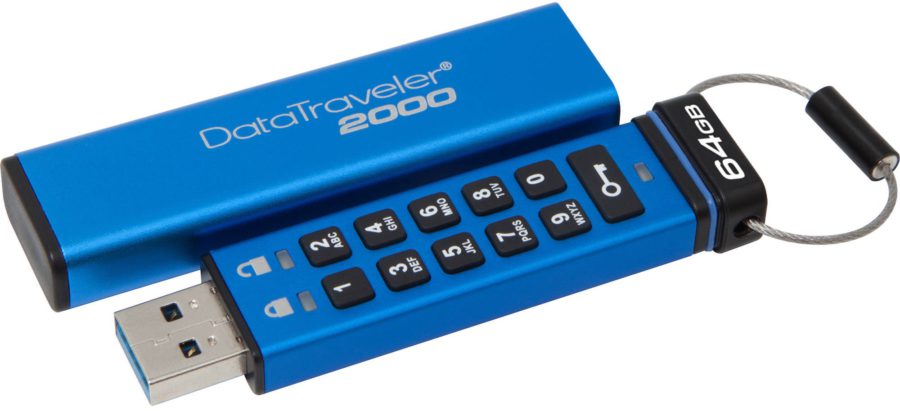
To work with cryptocurrency payments, there are many software for different devices and operating systems. The most typical representative of such modern software is the MetaMask extension for Google Chrome. But this is rather yesterday, because access to money and operations depends not only on the stable operation of the application, but also on the operating system as a whole. If the application works at the hardware level, the risk of losing money during various failures, sudden disconnections from the network, and other things is minimized. This is the goal of the creators of the first swallows of the new world of blockchain smartphones, allocating additional microcircuits not for post-processing photos, but for working with cryptocurrency. Today there are (or are about to begin to exist) only a few such devices:
Samsung Galaxy S10
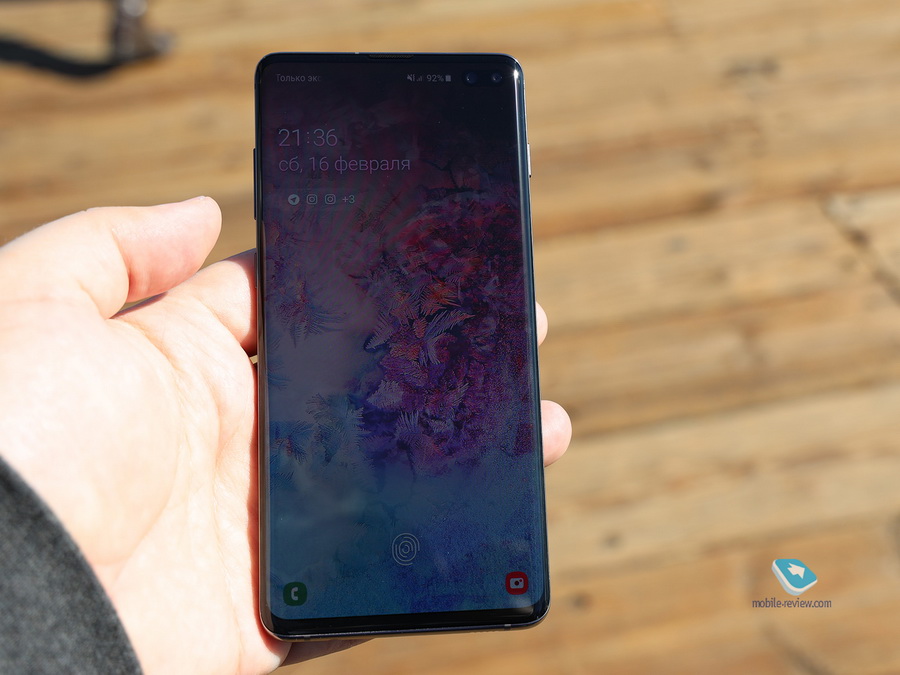
At the moment, the Korean flagship is equipped with a built-in wallet for Ethereum and ERC tokens, and supports payment with them in the Samsung branded store. According to insider information, last year Samsung's network division began developing its blockchain, which will be implemented primarily via a closed B2B protocol (transfers between legal entities). Later (it is not known when) the Samsung blockchain will become public, implementing what is written about in the introduction to the material. There is a heated discussion on specialized Korean forums whether Samsung will create its own cryptocurrency with an entry into the IDEX exchange, and if it does, what this currency will be called. Perhaps Samsung Coin? Samsung Bonn? Samsung Twinkle? Who knows, we'll wait and see.
HTC Exodus 1
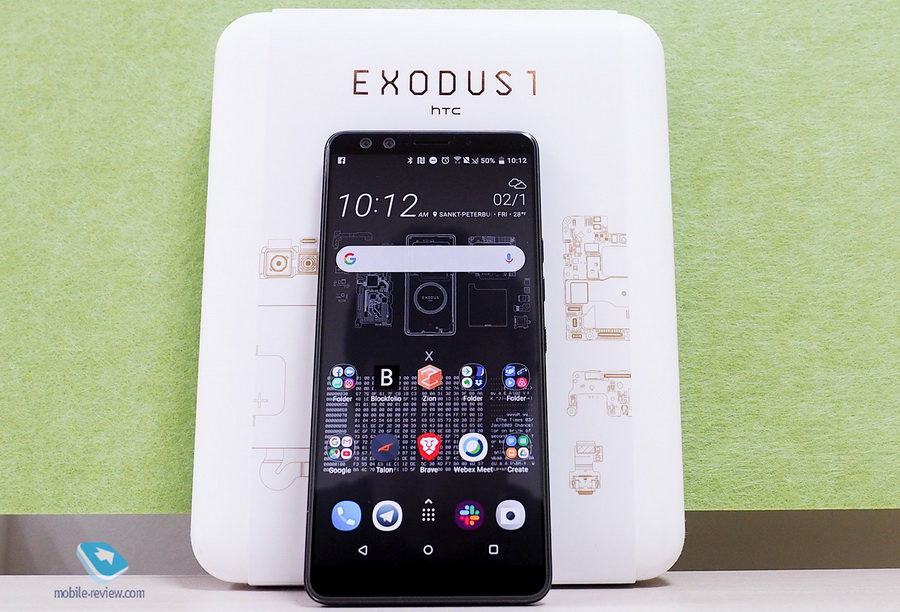
The smartphone was in the hands of Sergei Demidov and turned out to be a well-protected cryptocurrency wallet. It seems that this is its limited functions at the moment, and more can be found in the review.
Pundi xphone
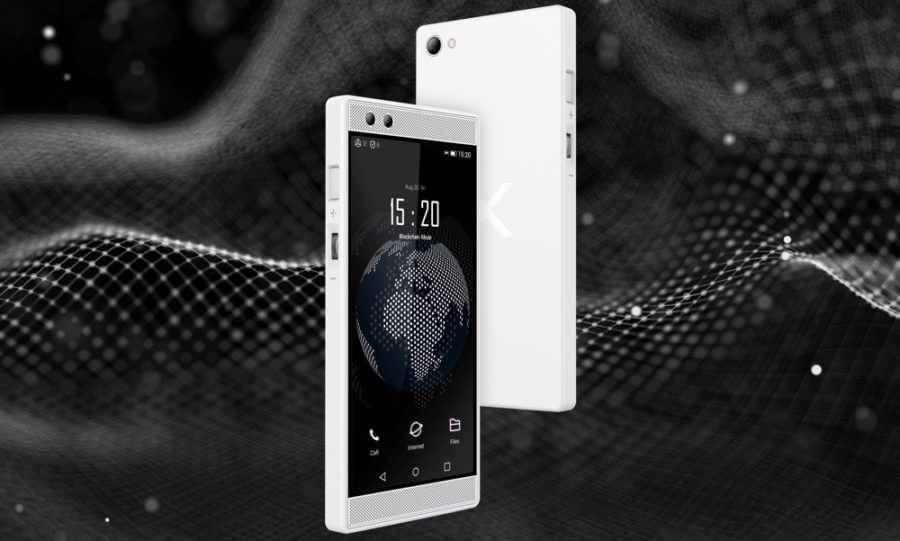
The creator of the Pundi X Open Platform cryptocurrency is preparing to release its own smartphone, named after the daddy Pundi Xphone. The latest news about this development dates back to the end of April this year, and, in fact, nothing else is known. Some information can be gleaned from the prototype, which was presented at CES 2019. In addition to encrypting messages and voice calls, a consumer payment in cryptocurrency was demonstrated when Pundi was brought to the QR code of a product. Unfortunately, after April, the news about this smartphone has died down, and there is simply nothing to add.
Finney by Sirin Labs

The smartphone costs $ 899, and even if we don't talk about the presence of a secure hardware wallet in it, which allows you to buy goods without being exposed in the global network (payment using a private key, popularly a 'cold wallet' or 'refrigerator'), then the filling is quite simple relevant today: Qualcomm® Snapdragon ™ 845, 6 GB RAM, 128 GB storage, Android 8.1.
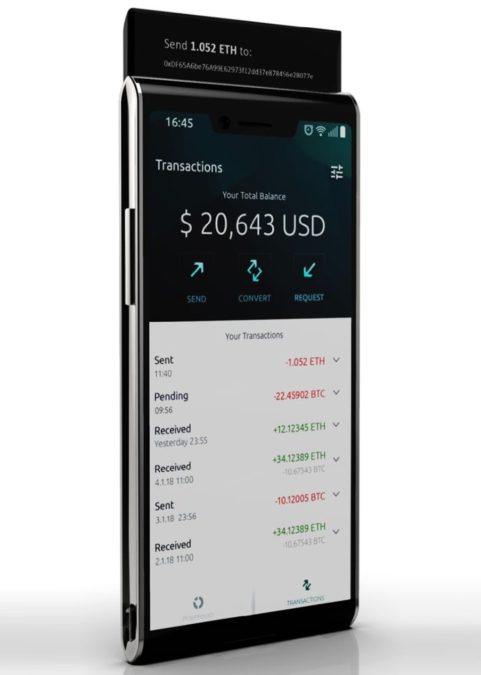
The zest of the device is an additional screen going up, on which cryptographic processes are displayed.
Electroneum M1
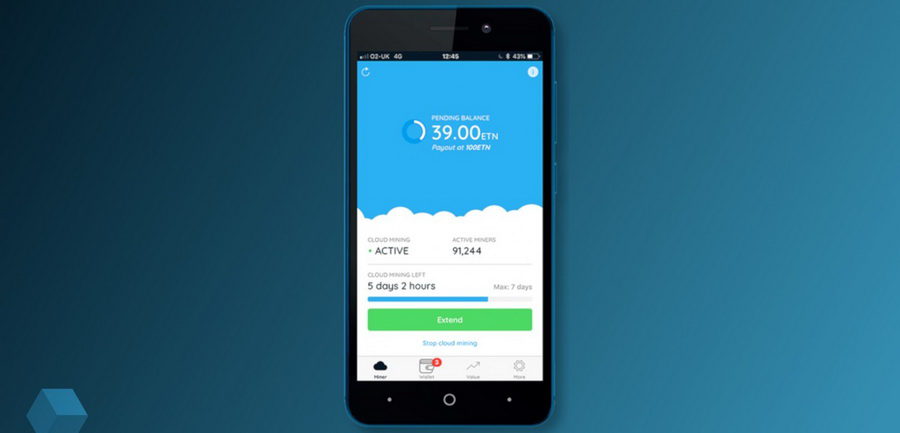
I really want to change the name of the smartphone to 'Electronium', but it's impossible, because the blockchain on which it works is written with 'e'. A budget smartphone, very similar to the budget ZTE, costs as much as $ 80. In addition to the function of a software (non-hardware) wallet for ETN (Electroneum), the smartphone can act as a connected node to the blockchain network and 'mine'. The manufacturer claims that in this mode a smartphone can earn up to $ 3 per month for its owner. This is a good publicity stunt that hides the 24/7 operation of a smartphone constantly connected to the outlet, and the need to attract new customers (as in network marketing). The smartphone is not new, it has a $ 15 filling (1 GB RAM, 8 GB storage, 4 × 1.3 GHz, etc.), a sad sight, I cannot advise. At its core, Electroneum M1 is not a blockchain smartphone, it is an ordinary smartphone with mining software embedded in the system partition.
Conclusion
The world of the future has not yet been determined, but we are already seeing its first shoots. The first specialized Internet resources appeared, where people who are ready to accept cryptocurrency for goods and services rendered can meet and agree. It is this consent to the deal that gives real value to any cryptocurrency, and not at all a speculative exchange rate or statements by politicians. One such resource is The Bounties Network, launched in 2017.
The resource resembles a mixture of the fl.ru website for freelancers and the built-in cryptocurrency payment system.
There is another positive aspect of the appearance of the first 'refrigerators' for smartphones, which is not obvious at first glance. Hardware storage for cryptocurrency naturally suggests itself to be used as a universal safe, we can only hope that A-brand marketers will see this advantage and begin to promote it.
Be sure to express your thoughts on our common future, in which direction should it change? Will blockchain module in smartphones become as widespread as NFC?
